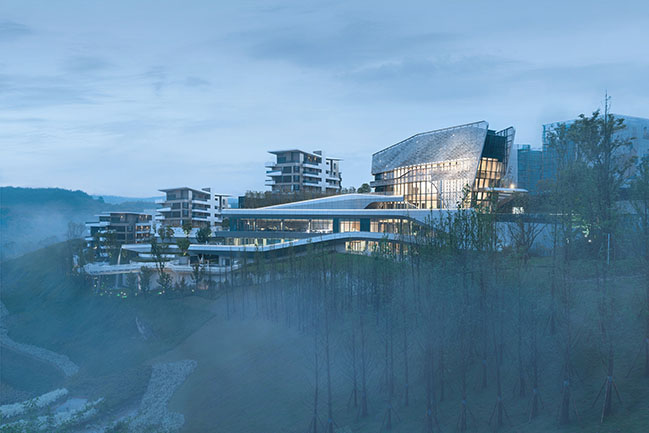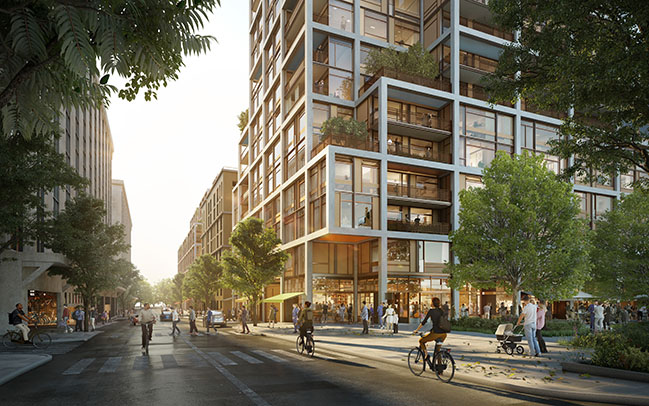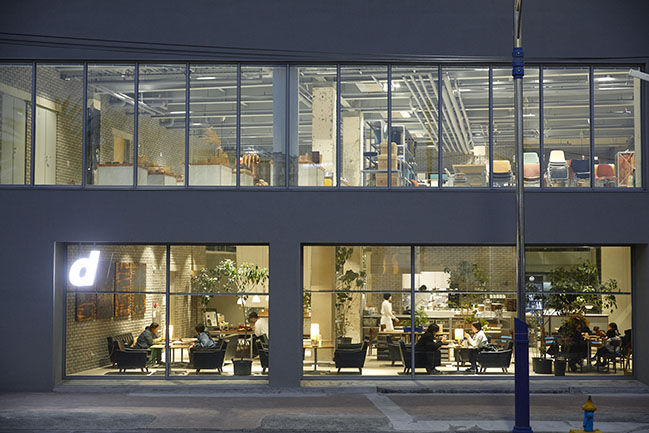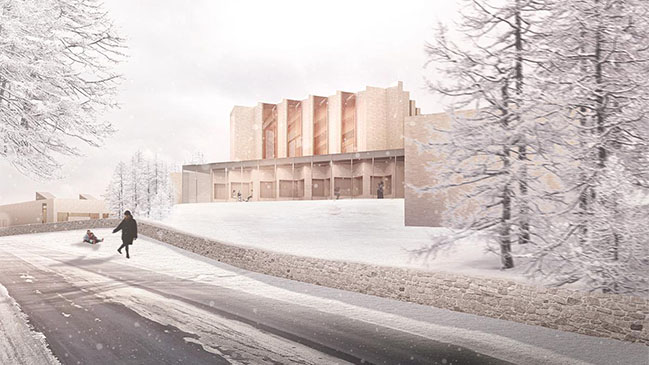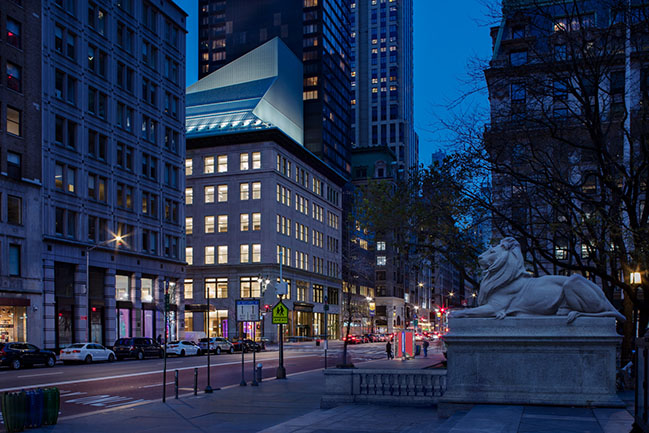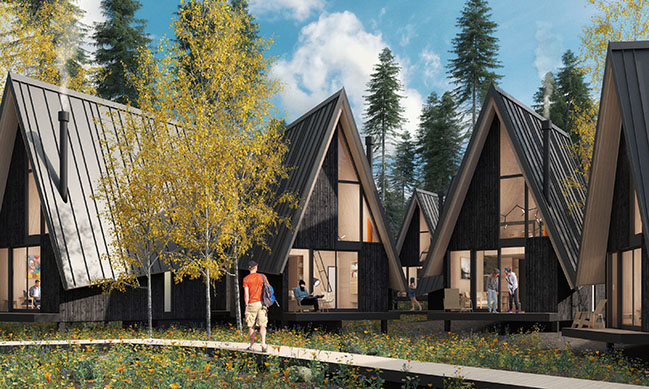06 / 03
2021
The Danish architecture firm Cobe, led by Founder Dan Stubbergaard, has won the prestigious international competition for a new university library in the heart of Sweden’s second-largest city, Gothenburg.
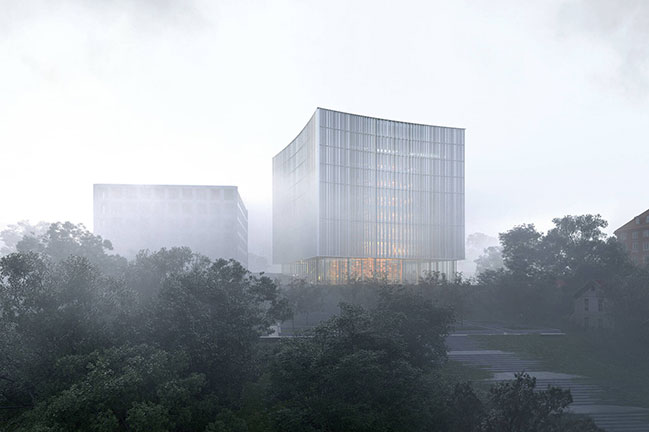
From the architect: The new 16,000 m2 university library in the Swedish city of Gothenburg will be designed by a Danish team: architect Dan Stubbergaard and the rest of the architecture firm Cobe have won the international competition for the prestigious project. The new university library will be located in the heart of Gothenburg, in the university area of Näckrosen, near to many of the city’s cultural institutions and to the Faculties of Humanities and The Fine, Applied and Performing Arts. In addition to providing a new and attractive setting for knowledge-sharing and research in the Swedish university city, the building will house the existing libraries for the humanities, the arts, music and drama as well as the university archives and digital services. Cobe’s project was selected by a unanimous jury, made up of representatives from Akademiska Hus – a state-owned property company and the client for several Swedish universities – as well as the University of Gothenburg, the City of Gothenburg and Architects Sweden.
”The proposal from Cobe is the single concept from the competition with the greatest development potential and displays a clear and unique identity. It adapts to the site’s unique qualities while also meeting the specific needs of the University of Gothenburg. Cobe is a very worthy winner and will continue to be our partner as we move on to further developing and concretizing the project,” says Hayar Gohary, Project Director at Akademiska Hus and Chairman of the jury.
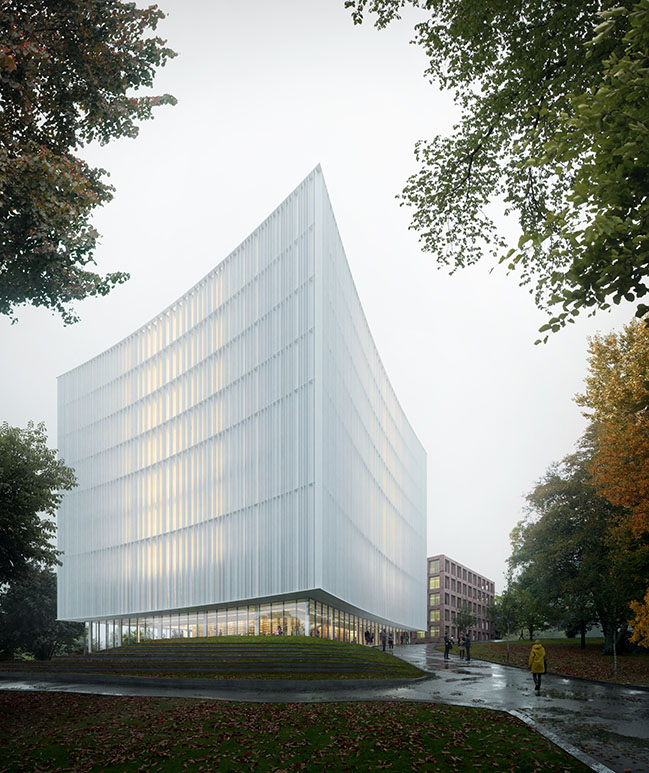
With the book as inspiration
Cobe’s winning project uses the book as the source of inspiration and point of departure for the design. Both the lightness and the gravity of a book is reflected in the subtle curvature of the building’s volume and the vertical lines of its facade – much like the pages of a book, just being opened. The volume rests on an open and transparent ground floor with expansive floor-to-ceiling windows. The ambition is to allow the building to blend in with the surrounding park, to invite both new and current users inside, and to stand out as a beacon of knowledge at the top of the university area of Näckrosen.
Dan Stubbergaard, architect and Founder of Cobe, explains, ”This is an exceptional commission to win, and we are very proud and honoured. With the library’s placement at the top of the hill, we aim to create a distinctive beacon of knowledge. The book serves as the inspiration and point of departure for the design – the building volume, its colours and materials all point to a book being opened. Regardless of which direction you approach it from, you are invited in. The integration of the building and park was a key consideration from the outset, and we have deliberately preserved as much of the existing park landscape as possible. In doing so, we have created an open connection between the city, the university and the library’s users. We look forward to working with Akademiska Hus and the University of Gothenburg to further develop our competition proposal.”
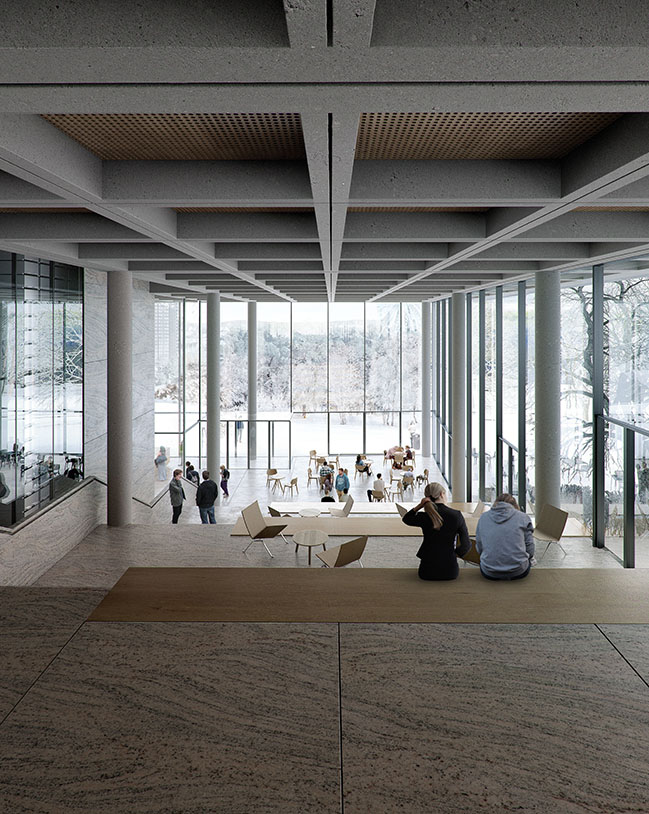
Wood as the primary material
The library will contain quiet zones for focused work as well as active areas and gathering spaces that can be used for events, exhibitions, meetings, and lectures – a distinction that is also reflected in the choice of materials. The active, open ground floor, paved in granite features a visible concrete structure, which allows for large and open spaces, while the eight upper floors, which house the library itself, are constructed of wood. In addition to being an exceptionally sustainable and durable material that reduces the building’s CO2 footprint, wood also provides a pleasant indoor environment with a stress-mitigating acoustic profile. The building’s facade will consist of light-coloured, vertical elements that act as a sun screen.

Wood as the primary material
The library will contain quiet zones for focused work as well as active areas and gathering spaces that can be used for events, exhibitions, meetings, and lectures – a distinction that is also reflected in the choice of materials. The active, open ground floor, paved in granite features a visible concrete structure, which allows for large and open spaces, while the eight upper floors, which house the library itself, are constructed of wood. In addition to being an exceptionally sustainable and durable material that reduces the building’s CO2 footprint, wood also provides a pleasant indoor environment with a stress-mitigating acoustic profile. The building’s facade will consist of light-coloured, vertical elements that act as a sun screen.
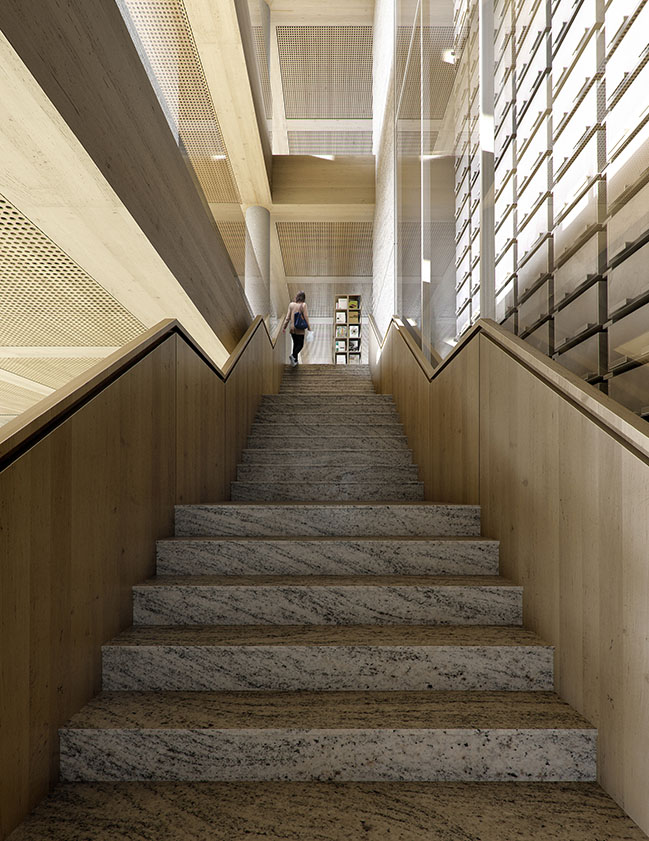
Cobe’s fourth project in Gothenburg
The construction of the university library is scheduled to begin in 2025 with completion in 2028. It is Cobe’s fourth project to be realized in Sweden’s second-largest city, Gothenburg. Last year, the architecture firm announced its design centre for the major Chinese automaker Geely, which will be completed in 2022. Earlier this year, Cobe similarly announced that the firm had won the competition for the 100-metre tall Global Business Gate high-rise, which is scheduled to be completed in 2025. Both buildings are situated on Gothenburg’s central harbour front. Cobe is also currently executing design work on the Gothenburg Botanical Garden, set for completion in 2026.
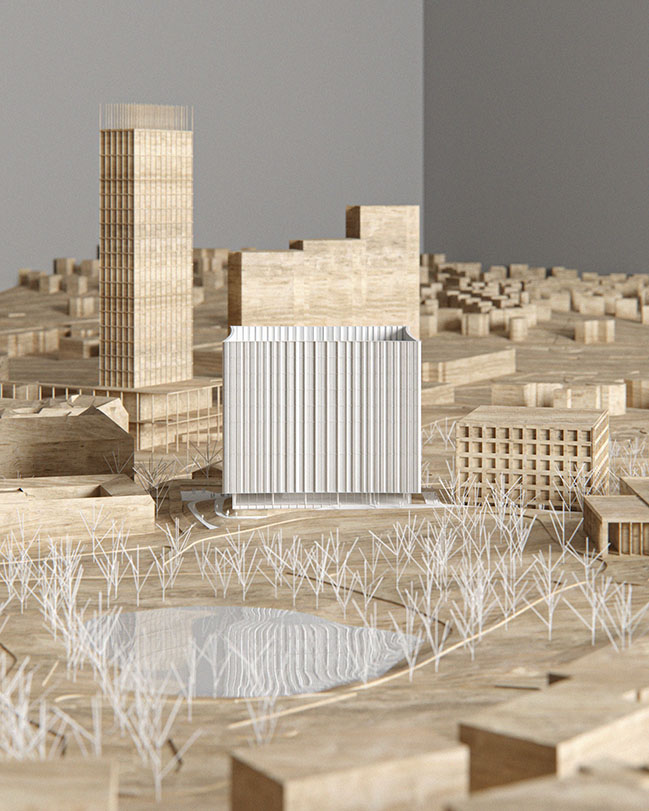
Architect: Cobe
Client: Akademiska Hus
Location: Gothenburg, Sweden
Year: First prize in competition in 2021, completion in 2028
Size: 16,300 sqm
Collaboratos: Buro Happold
Images: Cobe
YOU MAY ALSO LIKE:
> Cobe opens exhibition in Berlin
> COBE has built new headquarters for adidas in Germany
Cobe wins competition for Gothenburg University Library
06 / 03 / 2021 The Danish architecture firm Cobe, led by Founder Dan Stubbergaard, has won the prestigious international competition for a new university library in Gothenburg
You might also like:
Recommended post: Iconic Apple Fifth Avenue blends history, placemaking and innovation
